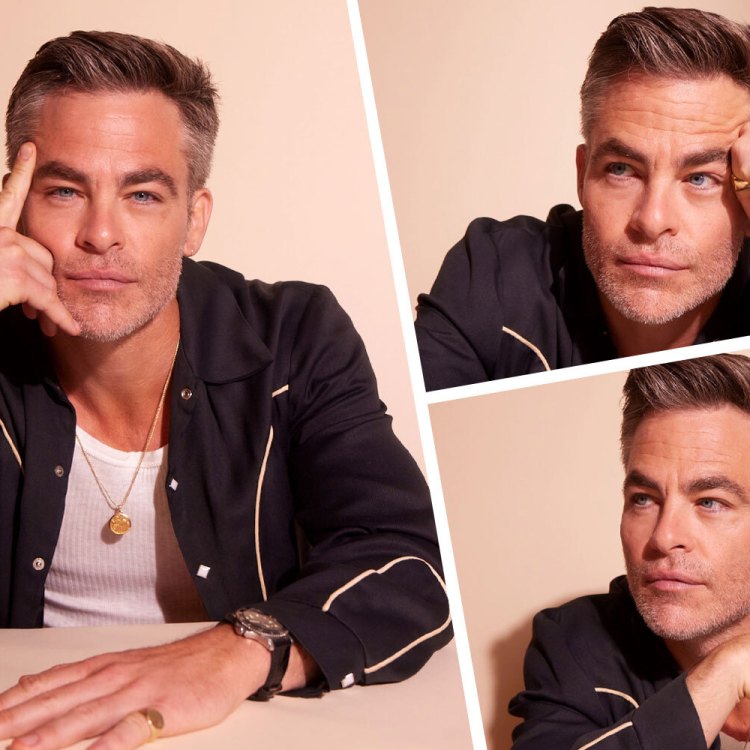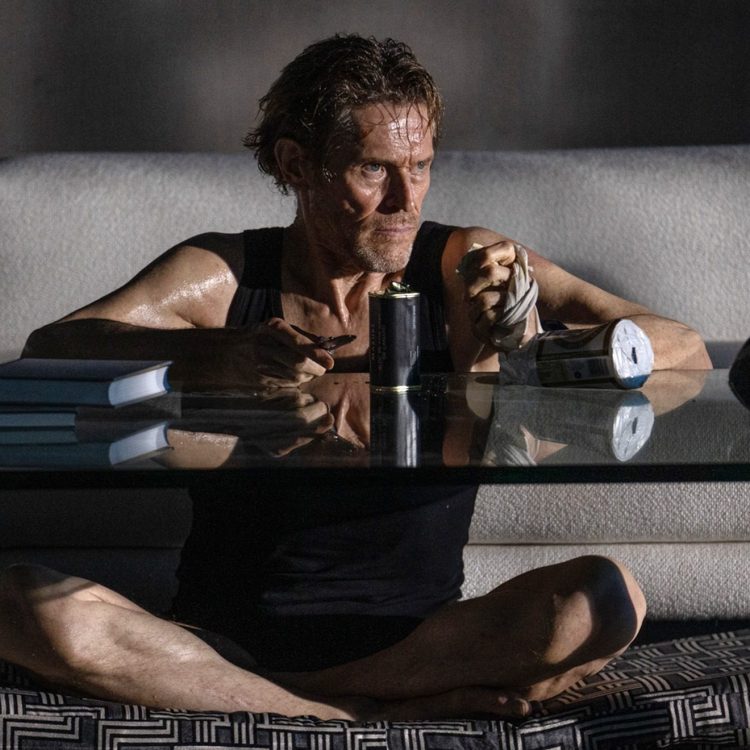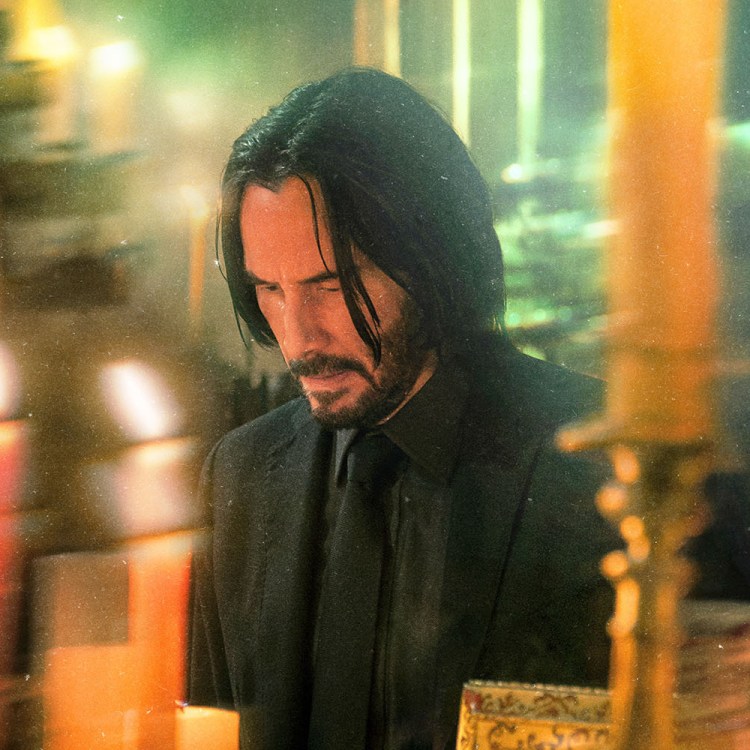There’s something about adapting certain long-unfilmed 20th-century literary classics that often results in paralysis, or at least anticlimax. Think of Zack Snyder’s handsomely appointed, technically faithful but oddly drained version of Watchmen, or the lavishly stiff, stilted 1974 version of The Great Gatsby. (Baz Luhrmann brought some more life to his 2013 edition.) Don DeLillo’s White Noise seems like a perfect addition to the list of projects too dense, too ambitious and/or too writerly to really work as a movie, yet too well-known to escape movie treatment.
But Noah Baumbach, in what seems likely to be the waning days of Netflix’s appropriately ’80s-style spending spree, has taken up the burden of translating a book he obviously loves to a medium where, on the surface, it doesn’t seem to make much sense. DeLillo’s book is both sardonic and despairing, filled with clever, heightened dialogue and satirical caricatures in the life of an aging (but aren’t we all?) academic and his modern blended family.
Academia, acid comedy, marital tensions and funny dialogue admittedly make the whole thing sound like a potentially good fit for Baumbach, the gifted writer-director who most recently made the blistering and sometimes hilarious divorce dramedy Marriage Story, in addition to a litany of other great, thorny movies including The Squid and the Whale, Greenberg and Frances Ha. Who better to revive the absurdities of the Reagan era than the guy who had Adam Sandler rummaging through a family basement and pausing on a taped-off-TV VHS copy of Legal Eagles in The Meyerowitz Stories?
Yet in some ways, Baumbach seems to have made the task of adaptation harder for himself. He has not exactly translated DeLillio’s text into a Noah Baumbach picture, beyond who he’s cast as Professor Jack Gladney (Adam Driver, his later-period leading man) and Jack’s wife Babette (Greta Gerwig, his frequent star and co-writer, as well as his partner in real life). Instead, Baumbach lets the overlap speak for itself, sometimes literally — much of the film’s dialogue is verbatim from the book, and it sounds a bit like his other films (especially coming from Driver and Gerwig), but with an arch, alternate-reality sensibility.
Netflix’s Secret Focus Group of Subscribers Is Altering What You Watch
A few thousand people in the Netflix Preview Club get to view and critique movies and shows before they’re released to the publicThe biggest departures from the book also depart from Baumbach’s comfort zone. The book and movie both turn on the introduction of an “airborne toxic event,” a poisonous cloud that materializes over a college town, and sends residents hurtling away from nebulously defined harm, toward shelters and each other. Before and especially after, the Gladneys grapple with their mortality. Baumbach gives the toxic-event scenes a sheen of vivid Spielbergian wonder-doom and turns a relatively brief passage from the book into a tense but comic car chase. Similarly, but moreso, the film’s elaborate, supermarket-set closing piece springs from neither the book nor Baumbach’s other films — it offers more archness, more choreography, just plain more.
This all sounds like it might be describing a movie that doesn’t work, a challenge issued by Baumbach, to himself, that overinflates and becomes impossible to grasp, ultimately neither fully his nor fully DeLillo’s. But while White Noise may lack the prickly heartbreak or neurotic hilarity of Baumbach’s best films, it’s a wild, weird and kind of wonderful use of Netflix’s cash, and your time. The remove of the material — its period fashions and limitations, the way it conceives of the supermarket as a beacon of brightly lit consumer comforts — is balanced out by its broader prescience. The movie isn’t set in 2022, but its world is on the precipice of catastrophe, where families look to other families for guidance on the degree of panic they should be experiencing, and it evokes more technologically advanced versions of the same feelings — like scrolling Twitter, attempting to decipher how frightened or outraged we should be. Sometimes, as with Snyder’s Watchmen, leaving a once-contemporary work of fiction in its original period sticks it in amber. With White Noise, it’s one more way of confronting anxieties and commenting upon them simultaneously.
Maybe that’s why Driver and Gerwig feel so peculiarly well-suited and well-served here, even though they’re both arguably miscast. (If nothing else, Mr. and Mrs. Gladney are supposed to be further past 40, which neither actor has yet reached.) Both Driver and Gerwig came up chronicling different forms of 20-somethings drifting in the late 2000s and early 2010s, intersecting for Baumbach’s Frances Ha. Without giving off the forever boy vibe of some other male stars his age, Driver can nonetheless convey the nagging self-doubt beneath the authority of his imposing physicality; that was basically the entirety of his Star Wars assignment, and here he channels it into a genial but somewhat befuddled 40-something professor (of “Hitler Studies,” giving him an area of expertise that’s at once deeply relevant and too ridiculously specialized to actually help anyone). Gerwig, meanwhile, turns her performer’s hesitancy inward, as her Babette quietly, privately searches for a chemical solution to a fear of death. Baumbach’s formative experiences as an ‘80s moviegoer (and admiration of Brian De Palma, who he interviewed at length for a documentary) help navigate the movie’s sojourn into Reagan-era neo-noir.
If Marriage Story felt a bit like Baumbach’s magnum opus — raw and heartfelt and at least emotionally autobiographical, without sacrificing his sense of humor — White Noise, which is a technically “bigger” movie, plays like a more experimental, jammy B-side. Marriage Story reached an emotional peak with Driver singing Stephen Sondheim’s Being Alive; the characters of White Noise land on something more like not dead, not yet anyway. (Perversely, the newer movie’s biggest musical moment eschews songs of the period for Baumbach’s pal and LCD Soundsystem mastermind James Murphy.) It’s more oddity than masterpiece, but we have the book to fit into the literary canon. It’s a tribute to DeLillo and to Baumbach that a big-screen/home-screen White Noise would generate some feedback, and a little bit of static.
This article was featured in the InsideHook newsletter. Sign up now.























